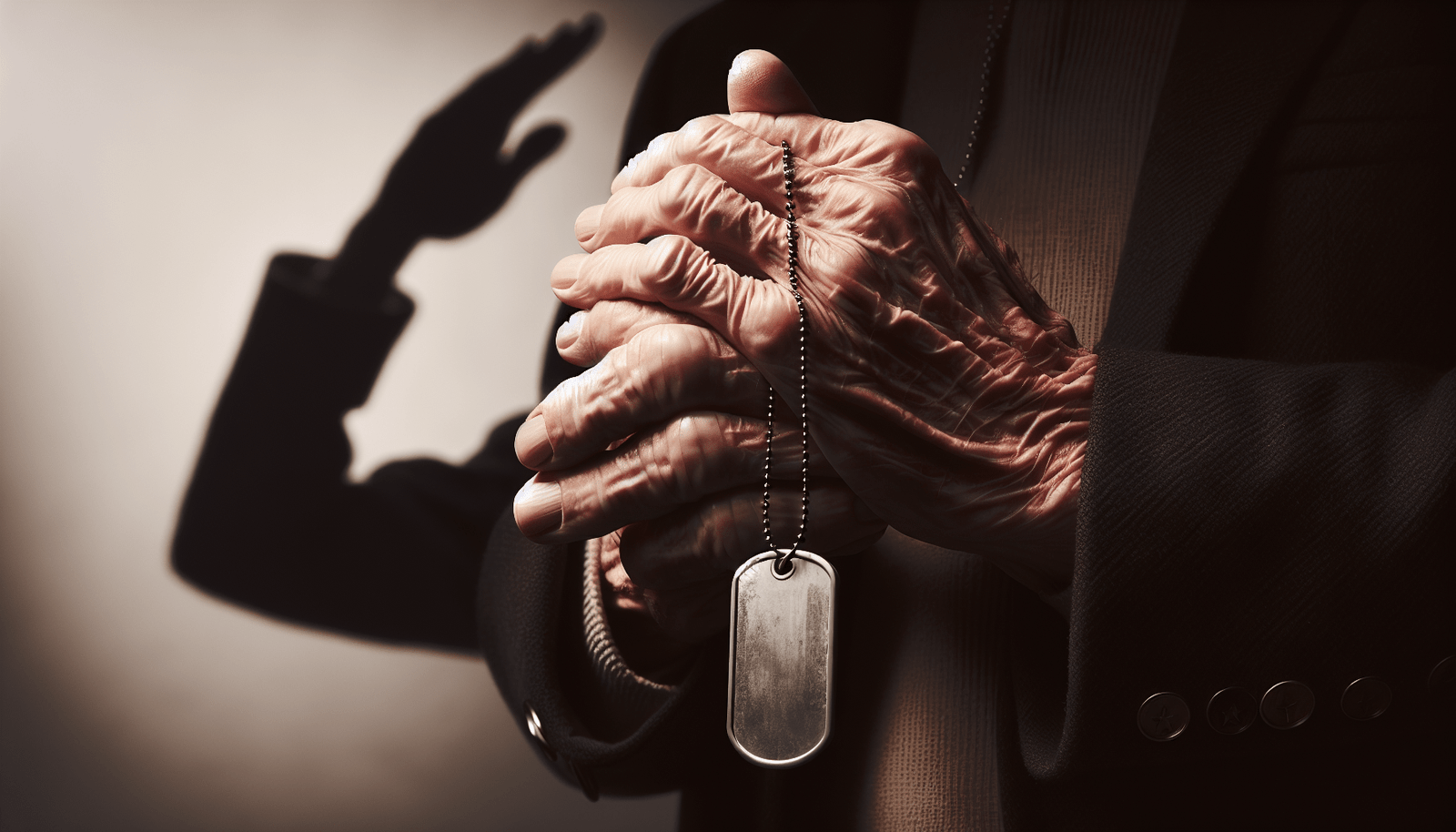Imagine stepping into a beacon of support tailored just for veterans, where no one stands alone and every step forward is guided with understanding and respect. “Just a Moment of Empowerment: A Veteran’s Guide” shines as that beacon, offering a comprehensive platform brimming with resources, connection, and the empowerment needed to navigate the transition from service to civilian life with ease and confidence. It’s a place where your service is honored, your challenges are acknowledged, and your potential to thrive is unleashed. Whether it’s demystifying benefits, accessing healthcare, finding financial aid, or connecting with fellow veterans, this guide serves as your ally, ensuring your journey is filled with opportunities and your voice, always heard.
Understanding Your Benefits
Welcome! As a veteran, you have access to an array of benefits designed to assist you in transitioning back to civilian life and to recognize your service. Let’s explore these benefits together, breaking them down so you can fully understand and utilize what’s available to you.
Breaking down VA benefits
The Department of Veterans Affairs (VA) offers a wide range of benefits to service members, veterans, and their families. These benefits include but are not limited to healthcare, disability compensation, vocational rehabilitation, education assistance, and home loan guaranty. It’s important to familiarize yourself with these benefits, as they can significantly ease your transition and improve your quality of life.
How to apply for disability compensation
If you’ve sustained an injury or developed a disease as a result of your military service, you may be eligible for disability compensation. To apply, gather your medical and service records, and submit a claim through the VA’s website or by visiting a local VA office. It’s helpful to consult with a VA representative or a veterans service organization (VSO) to ensure your application is thorough, improving your chances for approval.
Educational benefits for veterans
Thanks to programs like the GI Bill, veterans have fantastic opportunities to further their education post-service. These benefits can cover tuition, housing, and books. Explore the different educational programs on the VA website to see which fits your goals best, and don’t hesitate to reach out to the education office at the institution you’re interested in for additional support.
Home loans and housing assistance
The VA home loan program can help you purchase a home at a competitive interest rate without the need for a down payment or private mortgage insurance. If you’re facing housing instability or homelessness, the VA offers additional support, including emergency shelter, rent assistance, and supportive services. Reaching out to your local VA office can help you navigate these options.
Navigating Healthcare
Healthcare is a vital aspect of your post-service well-being. The VA provides comprehensive healthcare services tailored to veterans, ensuring you can obtain the physical and mental health support you need.
Enrolling in VA healthcare
To access VA healthcare, you’ll need to enroll, which can be done online, by phone, or in person at a VA medical facility. Once enrolled, you can receive treatment at any VA healthcare facility. It’s advisable to enroll as soon as possible to avoid any gaps in your healthcare coverage.

This image is property of pixabay.com.
Finding mental health support
Mental health is as crucial as physical health. The VA offers a range of mental health services, including counseling and therapy for issues like PTSD, depression, and anxiety. If you or someone you know is in crisis, the Veterans Crisis Line provides immediate help.
Accessing specialized care for service-related injuries
For injuries or conditions directly related to your service, the VA offers specialized care. This includes treatment for combat injuries, exposure to hazardous materials, and rehabilitation services. Engaging with a VA care coordinator can help you navigate the specialized services that are available.
Utilizing telehealth services
The VA’s telehealth services allow you to consult with your healthcare providers remotely. This is ideal for routine check-ups, medication management, and when accessing in-person care is challenging. You can set up telehealth appointments through the VA’s website.
Financial Empowerment
Transitioning to civilian life comes with its own set of financial challenges, but there are numerous resources aimed at helping veterans forge a sustainable and prosperous future.
Managing personal finance after the military
Adapting to civilian financial norms can be a learning curve. Budgeting, managing personal expenses, and planning for your future are crucial steps. There are free financial counseling services available through the VA and non-profit organizations focused on assisting veterans.
Exploring financial aid for veterans
In addition to educational benefits, there are grants, loans, and financial aid programs specifically designed for veterans. Whether you’re looking to start a business, purchase a home, or go back to school, there’s likely a program to support your endeavors.

This image is property of pixabay.com.
Budgeting for a smooth transition to civilian life
Creating a budget is essential for a smooth transition. Consider all your income sources, including any VA benefits you’re entitled to, and draft a budget that covers your living expenses, savings, and any debts. Financial planning workshops for veterans can also provide valuable insights.
Investment and savings plans for veterans
Looking towards the future, investing and saving are fundamental. The Thrift Savings Plan (TSP) for military service members is a great starting point, and the VA offers advice on other investment and savings options tailored to veterans.
Career Support and Opportunities
Your military skills are invaluable in the civilian job market, and there’s a wealth of resources available to help you leverage these skills for a successful career.
Translating military skills to civilian job markets
Many veterans find it challenging to explain how their military experience translates to civilian jobs. The VA and various veteran-oriented organizations offer résumé-building workshops, career counseling, and job search assistance to help bridge that gap.
Finding veteran-friendly employers
Many companies recognize the value that veterans bring to the workforce and actively seek to hire them. The VA’s Vocational Rehabilitation and Employment (VR&E) program can connect you with these veteran-friendly employers.
Networking and mentorship for veterans
Building a strong professional network and finding a mentor can significantly impact your career trajectory. Joining veteran networking groups and LinkedIn can provide valuable connections and advice as you navigate your civilian career.

This image is property of pixabay.com.
Starting your own business as a veteran
If entrepreneurship interests you, the VA and other organizations offer resources and grants specifically designed to help veterans start and grow their businesses. Utilizing these resources can provide a strong foundation for your venture.
Building a Supportive Community
Having a community that understands and supports you is crucial. There are many ways to connect with fellow veterans and build a supportive network.
Connecting with fellow veterans
Joining veteran organizations, clubs, and online forums can help you meet people who share similar experiences. These communities can provide friendship, advice, and networking opportunities.
Joining veteran organizations and clubs
Organizations like the Veterans of Foreign Wars (VFW) and the American Legion offer a sense of belonging and an avenue for advocacy on issues important to veterans. They also provide community service opportunities and social events.
Volunteering opportunities for veterans
Volunteering is a great way to give back and connect with your community. Many organizations seek out veterans for volunteer positions, recognizing the skills and leadership qualities they bring.
Family support and counseling
Supporting your family and ensuring they have access to resources is just as important. The VA provides family counseling and support services to help your loved ones understand and adapt to the changes that come with transitioning back to civilian life.
Mental Health and Well-being
Taking care of your mental health is essential to living a balanced and fulfilling life. There are specific services and practices that can help you maintain mental well-being.

Dealing with PTSD and anxiety
If you’re experiencing PTSD, anxiety, or other mental health issues, know that you’re not alone. The VA offers specialized treatment programs, including counseling and therapy, tailored to the needs of veterans.
Stress management techniques
Learning to manage stress effectively is crucial. Meditation, exercise, and hobbies can play a significant role in reducing stress. The VA and other veteran support groups offer workshops and resources on stress management techniques.
Importance of routine physical activities
Staying physically active not only improves your health but also your mental well-being. Whether it’s joining a gym, picking up a sport, or just going for regular walks, find an activity that you enjoy and make it a part of your routine.
Embracing hobbies and interests outside the military
Developing hobbies and interests outside of your military service can provide a meaningful outlet and a sense of identity. Whether it’s learning an instrument, painting, or gardening, embracing new interests can greatly enrich your life.
Education and Learning
Continuing your education can open new doors and provide personal enrichment. There are numerous educational benefits and resources available to veterans.
Using the GI Bill for further education
The GI Bill covers tuition, housing, and even supplies for your education. Whether you’re pursuing a college degree, a trade, or technical training, make sure to explore the benefits available to you under the GI Bill.

Online courses and vocational training
There are countless online courses and vocational training programs that can help you acquire new skills or advance your career. Many of these programs cater specifically to veterans, offering flexibility and support tailored to your needs.
Scholarships and grants specifically for veterans
Beyond the GI Bill, there are scholarships and grants specifically designed to support veterans in their educational pursuits. Research and apply for these opportunities to help cover any extra costs associated with your education.
Life-long learning opportunities
Never stop learning. Whether it’s through formal education, workshops, or self-study, continuing to learn and grow is essential for personal and professional development. Many organizations offer life-long learning programs for veterans.
Housing and Living Assistance
For many veterans, securing affordable and comfortable housing is a priority. The VA and other organizations offer multiple programs to assist with housing needs.
Understanding VA home loans
VA home loans are an incredible benefit, offering favorable terms for buying, building, or refinancing a home. Familiarize yourself with the eligibility criteria and application process to take advantage of this opportunity.
Finding affordable housing
There are programs aimed at helping veterans find affordable housing, including rental assistance and subsidized housing options. Reach out to your local VA office or housing authority for guidance.
Relocation assistance programs
If you’re transitioning out of the military and need to relocate, there are assistance programs designed to help. These can cover moving costs and provide support in finding housing in your new location.
Home adaptation grants for disabled veterans
For veterans with disabilities, the VA offers grants to adapt homes to their needs, improving accessibility and comfort. If you qualify, these grants can make a significant difference in your quality of life.
Legal Rights and Advocacy
Navigating legal issues can be challenging, but there are resources available to help you understand and exercise your rights as a veteran.
Legal representation for veterans
There are legal services and organizations dedicated to assisting veterans with various issues, from disability claims to housing disputes. Don’t hesitate to seek out legal representation if you’re facing challenges.
Disability claims and appeals
If you need to file a disability claim or appeal a decision, the VA and other veteran advocacy groups can provide guidance and support throughout the process. Ensuring your paperwork is accurate and complete can improve your chances of success.
Protecting your rights as a veteran
There are laws in place to protect the rights of veterans, including employment rights and educational benefits. Staying informed about your rights is crucial to ensuring you receive the support and respect you deserve.
Veteran advocacy groups and resources
Engaging with veteran advocacy groups can be empowering. These groups work tirelessly to promote the rights and well-being of veterans, and getting involved can provide a sense of purpose and community.
Personal Stories of Empowerment
Hearing about the journeys of fellow veterans can be incredibly inspiring and reassuring. Personal stories highlight the challenges and successes experienced during the transition from military to civilian life.
Inspirational stories from fellow veterans
Listening to or reading about the experiences of other veterans can provide comfort, motivation, and a sense of belonging. Many veterans have overcome significant obstacles and gone on to achieve great things in their post-service lives.
Overcoming challenges after service
Transitioning back to civilian life is not without its challenges, but with determination and the right support, these challenges can be overcome. Stories of resilience and success can serve as powerful examples for us all.
Success stories in education and career transitions
Many veterans have successfully leveraged their military skills and benefits to excel in their education and careers. Their success stories can provide valuable insights and encouragement for your own journey.
How volunteering changed lives
For some veterans, volunteering has been a transformative experience, offering a sense of purpose and fulfillment. Hearing about how volunteering has impacted the lives of veterans and their communities can inspire you to explore volunteer opportunities.
In conclusion, transitioning from military service to civilian life is a journey filled with opportunities and challenges. By understanding and accessing the benefits, support, and resources available to you, you can forge a fulfilling path post-service. Remember, no veteran stands alone. Empower yourself and reach out to the resources designed to make your transition a successful one.
